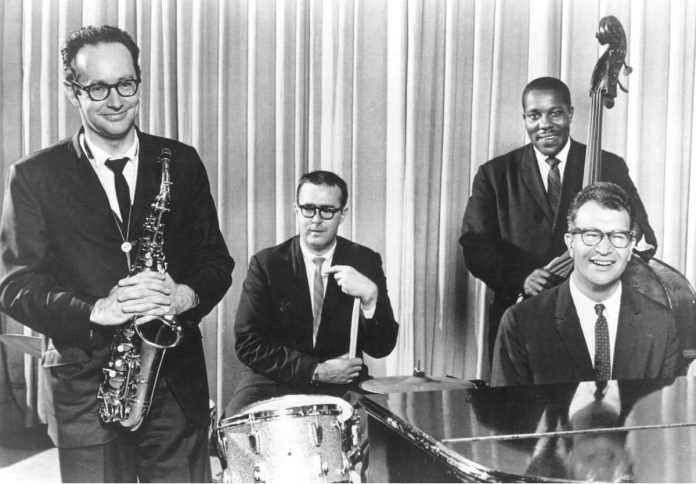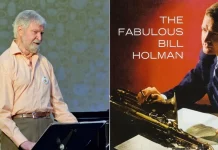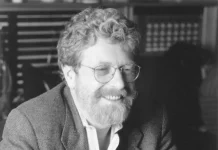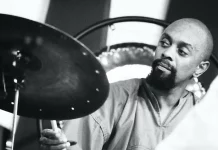
Bassist “Gene” Wright, the last surviving member of the classic Dave Brubeck Quartet, died in Los Angeles on 30 December at the age of 97. His death was announced online by the Brubeck estate expressing its sadness, adding that he “remained a good friend and honorary uncle to the Brubeck family to the end”.
Later nicknamed “The Senator”, Eugene Joseph Wright was born in Chicago in 1923 and as a young man played cornet, leading a group called the Dukes of Swing. Largely self-taught, he then took up the double bass, and his musical hero was Walter Page. Appropriately, and much to his delight, Wright landed a gig with the Basie band in the late 1940s. He also performed with Gene Ammons, Arnett Cobb, Buddy DeFranco, Red Norvo and Cal Tjader. In 1958, Wright joined the Dave Brubeck Quartet and with drummer Joe Morello and alto saxophonist Paul Desmond, recorded the celebrated album Time Out (1959), with the wildly popular Take Five.
Brubeck recalled that Wright’s solid bass lines “grounded” the quartet, and enabled it “to play other tempos and do polyrhythmic things. Oft times, Joe, on drums, would be playing a different counter-rhythm to what Gene was playing. Paul and I might be playing in a different rhythm from either of them”. Wright was to appear on more than 30 best-selling albums with the quartet before it disbanded in 1958, and made albums with Paul Desmond, Sonny Stitt, and Kenny Drew. Wright also featured in The Real Jazz Ambassadors, a jazz musical composed by Brubeck and his wife, Iola, with vocals by Carmen McRae and Louis Armstrong. It was inspired by the discrepancy between the US State Department’s Cold War tactic of promoting and funding worldwide jazz tours by stellar musicians as examples of American democracy, while upholding racial discrimination and segregation at home.
Wright, an African-American, was no stranger to Jim Crow. On Twitter the Brubeck estate said: “We remember the challenges Gene and the Quartet had to undergo in order to play at segregated universities on their US tours in the early 1960s.” During his first week with the quartet, when it arrived for a performance at a college in North Carolina, the administration baulked at the prospect of an interracial group and Brubeck refused to appear without Wright. Brubeck later remembered: “I wasn’t allowed to play in some universities in the US and out of twenty-five concerts, twenty-three were cancelled unless I would substitute my old white bass player for my black bass player, which I wouldn’t do. They wouldn’t let us go on with Gene, and I wouldn’t go on without him.”
We are deeply saddened to learn of the passing of bassist Eugene Wright yesterday at the age of 97.
Gene was the last surviving member of the “Classic” Dave Brubeck Quartet, and remained a good friend and honorary Uncle to the Brubeck family to the end. (1/7) pic.twitter.com/hmbQvWcKvI
— Dave Brubeck (@TheDaveBrubeck) December 31, 2020
After he left the quartet, Wright led his own group on a tour of “historically black” US colleges and universities. He humorously recalled appearing with Brubeck (along with other bands) playing in an NAACP benefit concert at Carnegie Hall, and being approached by a “brother” who exclaimed: “Gene Wright! What are you doing with that group?” He replied “Well, I was offered a job.” After the quartet’s set, the “brother” said: “Man, I owe you an apology, because you made Dave play harder than I’ve ever heard him play.”
In later life, Wright did private tuition, worked in television studios, served on the advisory board of the jazz division of the International Society of Bassists, and headed the jazz department at the University of Cincinnati. Although he had no recordings under his own name, his steady and concise presence on dozens of sessions was always a guarantee of their worth.















